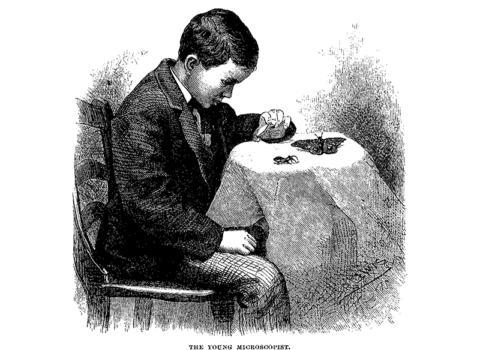The Reconciliation
In Don DeLillo’s new novel, The Silence, the power grid and the internet completely fail on Super Bowl Sunday, the day a majority of Americans are glued to their screens, causing Diane, one of the main characters, to wonder during the shutdown: What happens to people who live inside their phones?
It’s a good question to ask after the January 6 Capitol riot, yet another astonishing event in an age that constantly stuns us. When I recall the images of that invasion—the crazy, the clueless, and the rabid parading around the Capitol rotunda—what strikes me are the people taking selfies with their cell phones, as if they were tourists rather than vandals, with no existence outside the frame of their phone’s display screen. This recklessness, at once innocent, weird, and idiotic, bespeaks a crisis as well as a national challenge: How have these people been so thoroughly marginalized from traditional society, and how can they be brought back?
Sorry, but I don’t subscribe to the theory about the evil genius Donald Trump organizing a failed fascist coup d’état. Trump does have a major jones for his own phone, but he lacks both the attention span and the intellectual capacity required to concoct a complex plot. A wild beast that acts instinctively—sometimes relying on deception, other times on animal intuition—the former president chiefly produces theater, with the intention of exciting and amusing the crowd instead of achieving concrete political goals. Having no considered plan or coherent organization, the January 6 rioters constitute no genuine threat to the government; they represent an impulse triggered by emotion, not based on ideology. Despite his considerable limitations, Trump the actor should have realized that words can have great power, and that to some people feelings can be as real as ideas and actions. Unfortunately, his imagination didn’t have the range to envision the death of two of his supporters: Roseanne Boyland, trampled to death by the crowd, and Ashli Babbitt, fatally shot by a policeman. But when all is said and done, the real danger remains that of individual, random violence, and it’s what President Biden must be wary of. The actor John Wilkes Booth, who assassinated Abraham Lincoln, was also a self-created player on the national political stage.
So what is to be done about our 74 million fellow citizens who voted for a crook, and about the boisterous minority among them who would be willing to follow Trump’s banner to the bitter end? A friend of mine, whom precarious health and COVID-19 had kept confined to his New York apartment since last March, told me a story: Not long ago, he and his partner rented a house on the west coast of Florida so that they could breathe some fresh air. At first, their next-door neighbor seemed friendly—he even invited them to swim in his pool. But then they ran into him outside when they were wearing their masks, a practice that’s nearly universal in New York City. According to my friend, “The guy recoiled as if we’d insulted him. He insisted that the virus was a hoax; all you had to do to avoid it was to take hydroxychloroquine.” And so on. For the time being, they’re dodging all contact with their neighbor. But in the future, they’ll have to find some way of reconciling the gap between them.
If President Biden is really in favor of reconciliation, he could do a lot to help achieve it. A good opportunity will soon present itself: his first public address to a joint session of Congress is scheduled for February 23. This address would be the ideal occasion for the president to admit that the endless wars in Iraq and Afghanistan are mistakes comparable to the fiasco of the war in Vietnam, and that working- and middle-class people have borne most of the burden in deaths, injuries, and taxes. That the rich have been getting disproportionately richer ever since the Reagan years, including through two Democratic administrations, thanks to the deregulation of the financial markets and the banks and to inadequate capital-gains taxation, which favors stockholders and property owners. That the touted benefits of “free trade” and globalization actually harmed ordinary people by giving away their jobs, and that the Democratic Party, together with its Republican allies, took a wrong turn with the enactment of the North American Free Trade Agreement in 1994 and the signing of a trade-normalization treaty with China in 2000—and that the destruction of unions by free trade has removed a crucial safeguard against the current working-class rage so prevalent during the Trump era. That immigration is a social blessing as long as the most vulnerable U.S. workers are protected by a decent minimum wage, and that the the arrival of hundreds of thousands of undocumented immigrants willing to work for less than the minimum wage may cause the most vulnerable citizens to lose their jobs.
The president should similarly tackle the degraded culture of the Internet and Twitter. Rather than encouraging Big Tech to censor Trump and his supporters—a hypocritical and tactically stupid policy, since it might make Trump a martyr—Biden and the Democrats could regulate and tax digital platforms in order to maintain a system of public education that would serve as a powerful counterweight to the fatuousness and mendacious cacophony of the social networks.
And if not? Faced with technological catastrophe, DeLillo’s character Diane thinks about escaping the chaos in her kitchen “to go for a walk, alone.” Similarly, in reaction to the social collapse displayed on January 6 in Washington, D.C., one can likewise choose, as the novel suggests, solitude and silence—can, in other words, say good-bye to the Republic.



